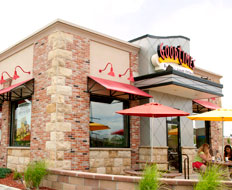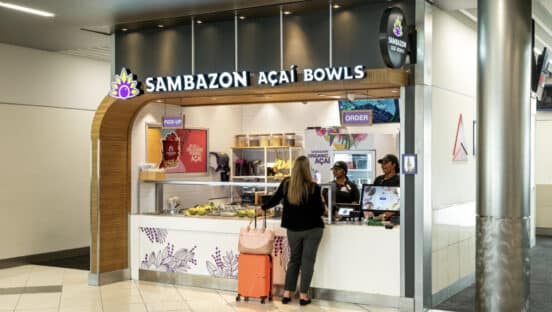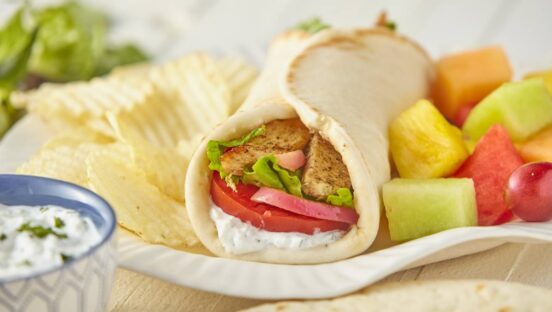Good Times Restaurants had a good time on the stock market last year. The 39-unit, Golden, Colorado–based burger chain used growing same-store sales and a new breakfast menu to help double its stock price during 2012, making the company the best equity performer among restaurant chains for the full year.
That fact is all the more impressive considering restaurant shares outperformed the overall market last year, even amidst bustling corporate activity that included mergers, acquisitions, new stock offerings, and special dividends.
“The industry has been in the eye of investors, because it’s one of the areas they can count on for growth in the broader retail and restaurant segment,” says R.J. Hottovy, an analyst with Chicago-based investment firm Morningstar Inc.
“Retail is saturated by the likes of Amazon and mass merchants, and there are not a lot of [retailers] with unit development growth,” he says. “So what we’ve seen is a rotation into restaurants.”
Among 30 restaurant companies with limited-service brands that traded the entire year, 20 outperformed the index in 2012. Fast-casual restaurants, which have enjoyed major growth in recent years, generally didn’t do as well as other quick serves.
Good Times’ share price rose from $1.15 per share at the end of 2011 to $2.31 at last year’s market close. The stock jumped in December after the company reported its same-store sales increased 6.8 percent the previous month, when Good Times completed rolling out its new $2 Hatch Valley Green Chile Breakfast Burritos.
“Most of the stock performance is from fundamental improvement,” says Boyd E. Hoback, president and CEO of Good Times. “We got beat up pretty bad by the recession, but now we’ve had double-digit compounded same-store sales growth for two years.”
The company’s shares also benefited from its sale of some low-volume stores, the $2 million it raised from a preferred stock sale, and its real estate sale-leaseback deals.
Good Times is looking to acquire another restaurant brand this year, Hoback says.
The next-best limited-service restaurant stock performer in 2012 was AFC Enterprises Inc., parent of Popeyes Louisiana Kitchen. Its stock increasd 77.8 percent over 2011, thanks to strong sales and earnings. Jamba Juice (up 71 percent), Nathan’s Famous (60.3 percent), and Sonic (54.7 percent) followed.
Two franchise operators’ shares also did particularly well. Stock in Morgan’s Foods Inc., a KFC and Taco Bell franchisee, soared 386.1 percent after a Houston investment firm, JCP Investment Management, began buying up shares in the Cleveland-based business. JCP now owns 15.4 percent of Morgan’s, and its managing member, James C. Pappas, is now Morgan’s chairman.
Carrols Restaurant Group’s stock rose 96.1 percent, adjusted for the 2012 spinoff of its Pollo Tropical and Taco Cabana chains as Fiesta Restaurant Group. Carrols is Burger King’s largest franchisee, with about 570 units, 278 of which were acquired last year.
The worst stock performer of 2012 was Ufood Restaurant Group, a healthy comfort-food chain that suffered an 80 percent drop. The company filed for bankruptcy in December.
Others in the bottom five are Cono Italiano (down 40 percent), 2011’s top performer Pizza Inn (off 37.6 percent), and two of the industry’s biggest companies: Wendy’s and McDonald’s (down 12.3 and 12.1 percent, respectively). Share prices were not adjusted for regular dividends.
Merger and acquisition activity thrived in the restaurant industry last year. Five public restaurant companies were taken private, including Pei Wei Asian Diner parent P.F. Chang’s China Bistro, which was bought out by Centerbridge Partners for $1.1 billion. That was the only buyout involving a publicly traded limited-service entity.
Caribou Coffee Co. will also leave the public ranks this year. The chain agreed to be purchased for $340 million by Joh. A. Benckiser Group, an international holding company based in Germany.
Five full-service restaurant companies had initial public stock offerings last year, although a $200 million stock sale by CKE Restaurants, parent of Carl’s Jr. and Hardee’s, was scrubbed. Owner Apollo Management, a private investment firm, called off the IPO due to weak demand.
“The window closed” for CKE’s IPO, says Francis Gaskins, editor of Los Angeles–based IPOdesktop.com, which reports on initial public offerings. “They are going to have to make more money. Apollo slapped too much debt on them. At this point, it’s all about the income statement, and having all that debt decreases CKE’s profit potential and hurts their cash flow. I don’t think a highly leveraged company’s IPO would do well at this time.”
Burger King returned as a public company in 2012, but not with an IPO. Instead, its owner, 3G Capital, sold a 29 percent stake in the burger chain for $1.4 billion to an existing stock entity, Justice Holdings, and then renamed it Burger King Worldwide.
Gaskins doesn’t expect as many restaurant IPOs this year. Even if the industry’s profit prospects get better, “successful offerings would likely come from unique restaurants that have track records of strong financial performance,” he says.
Hottovy also projects more pressure in 2013 on restaurant margins, which already are historically thin. That is likely to be a drag on the restaurant industry’s stock performance.
“Companies did a great job of streamlining operations during the Great Recession, either through labor restraints or reduced costs,” he says. “They had been able to keep margins healthy to this point, but they are up against headwinds,” like elevated commodity costs.
Still, the analyst believes there will be some profitability growth in 2013, although it will be “weighted more to the back end of the year.”







